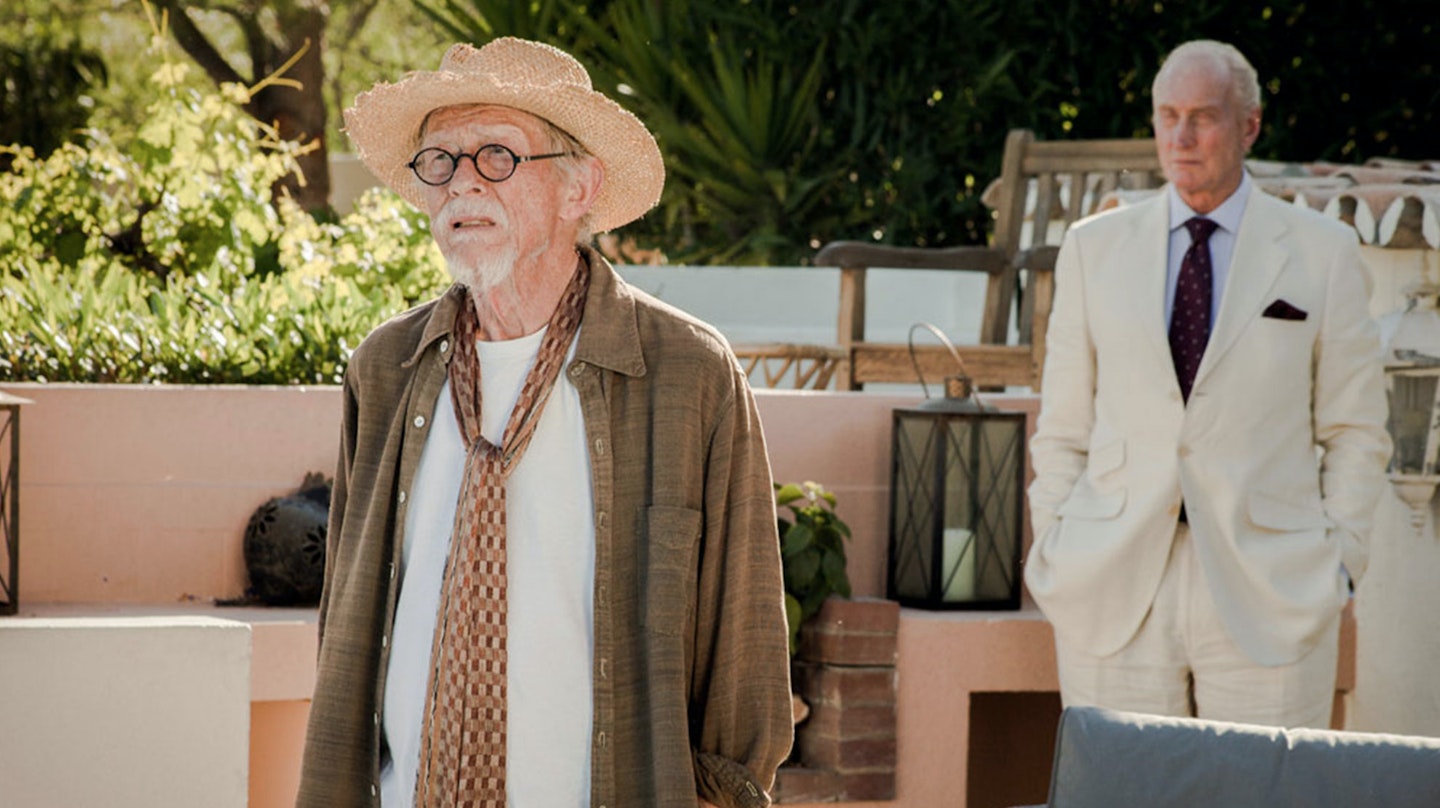Old musicians have it easy when it comes to parting statements: in their later years the likes of Leonard Cohen and Johnny Cash built cottage industries recording albums where they addressed their impending meetings with their maker.
Actors who don’t die young seldom get the opportunity to sign out with dignity — would Orson Welles, the man who gave the world Citizen Kane, really have chosen Transformers: The Movie as his final role if he’d known what was coming? Would Katharine Hepburn have picked Love Affair?

John Hurt was different. He got to address his impending demise with some dignity in this adaptation of a play about an irascible writer’s final days. A former *bon viveur *with an acid tongue and a fondness for the kind of hats and scarves only the seriously arty can get away with, Hurt is pretty much playing himself.
He’s terrific, of course, and astonishingly lacking in vanity, not afraid to both play Maitland as a prickly old sort and to display just what the ravages of time will do to the human body. The film’s most memorable moment is a scene in which he passes out in a swimming pool where Hurt’s painfully real performance adds to the already shocking spectacle of his real-life frailty. It’s genuinely hard to watch if you’ve ever had an ailing relative – ie: if you breathe oxygen and have made it into double figures.
Hurt is terrific, of course, and astonishingly lacking in vanity.
The script, however, adapted from a 1996 play by N.J. Crisp, lets things down. For all Hurt’s commitment, instead of the film raging against the dying of the light with a Dylan Thomas-esque fury, it’s a gentler examination of mortality — a mismatch of soap opera with the occasional nod to spirituality and a pretty coastal setting. Sure, Portugal looks lovely, but a scene where his estranged son Michael (Max Brown), seconds after their first meeting in years, demands to know if Hurt wanted him aborted is almost comically on-the-nose. From a plinky-plonky piano score that frequently feels like a placeholder to a somewhat unadventurous camera style, everything here is very safe: even death itself has its teeth removed.
Sure, this is a fantasy, but the ease with which Maitland can get his house in order with such perfect timing lacks credibility; there’s very little pain or failure in this death, which isn’t written anywhere nearly as honestly as Hurt performs it.
That said, we do get flashes of what could have been thanks to Charles Dance’s small part as a representative of a euthanasia clinic who may not be entirely earthbound. The strangeness of these encounters, in the ambiguous writing, shift in visual style and well-calibrated performances from two old warhorses, gives a glimpse of a better, bolder film. If only the rest of the film had shaken off its Sunday-evening feel to more confidently be itself.
